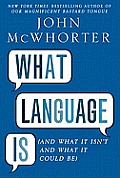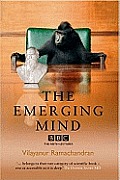
This
article in New Scientist is making the rounds this week. It's about what linguists call sound symbolism — the fact that, to some extent, people spontaneously associate certain sounds with certain concepts. So: Most people presented with the nonsense words
kiki and
bouba, asked to say which is more likely to be spiky and which more likely to be round, will think of
kiki as spiky and
bouba as round.
That will surprise few of us; researchers suppose it must have something to do, at least in cases like these, with the way the sounds are formed with the mouth: Kiki involves sounds that make the tongue stop airflow for a spell. Bouba has those too, but also makes you shape your lips in a round way.
Some sounds seem to suggest different kinds of movement as well. Another experiment showed that people can even "feel" an animal name's meaning in a foreign language just by its "ring." The South American Huambisa tribe call one bird a chunchuíkit and one fish a máuts, and 98% of a group of American students could tell that a chunchuíkit was a bird and a máuts a fish.
Then there are word families like glisten, gleam, glean, glow, glint, and so on, in which it would appear that on some level, to English speakers the consonant cluster gl "means" something having to do with shining. No one knows just how such word families arise, but there is evidence that English speakers do end up associating the sound and the meaning. It's the same with sn, which in English is associated with nasal sounds: think sniff, snort, snore, and such.
The New Scientist article, however, is highlighting a new implication some are trying to draw from sound symbolism that is, if you ask me, one of those things that's too good to be true (in one chapter in my new book What Language Is I discuss another one of these tantalizing notions, that Ebonics is an African language with English words). Ten years ago Vilayanur Ramachandran and Edward Hubbard at the University Of California, San Diego lit a lot of people up with the idea that sound symbolism might help us explain how language arose.

It's a tough question, that. English has dog; French has chien; Russian has sobaka. What do any of those words have to do with what makes a dog a dog? And what was the first word for dog? Unsurprisingly, some have surmised, in what is called the "bow wow" theory of language origin, that the first word for dog would have been based on the sound dogs make. Sounds reasonable. But — most things don't make sounds. Most things aren't even things, really — the concept of fast doesn't make a sound. Yet to speak, you need to have a word for fast.
However, sound symbolism might come to the rescue if, say, fast actually does have a sound. That's where scholars like Ramachandran and Hubbard come in, suggesting that the origin of language could have been not only a matter of gurgling like a brook and meowing like a cat, but making words with stops in them stand for briars and sticks, and words with round vowels in them for things like melons and, well, one can imagine some others.
As media-friendly as that idea is, however, I have always had a hard time getting really excited about sound symbolism. It's because no matter how much we extend its domain — not just imitations but things like fastness, spikiness, and even fish-ness — as far as tackling the origins of language goes, I think of someone asking how to build a house and someone telling you how to paint the windowsills.
Language, as I try to get across in What Language Is, is not just a matter of what the names of things are, or even just the names of things and actions. Language is also concepts, shades, modifications. What sounds would symbolize, for example, but, sometimes, under, or so? Or, a language is grammar; to wit, any language is a lot of grammar. A great many words are, in fact, grammar. One might ask: How would sound symbolism get us from arf and bouba to a perfectly ordinary sentence like Look how he can't even jump just halfway over the wall they put up just because that guy threw him when he asked him if he was really up to it. Note: this sentence isn't formal; someone could say it drunk or half asleep. It's just talking — and the question as to how language started must address real talking, not just isolated words.
So, sound symbolism is cool indeed. But I suspect it will not tell us much about how humans started talking. Cat? Sure. Of? We're going to have to keep thinking. A parting question, even: What is the sound of thinking?